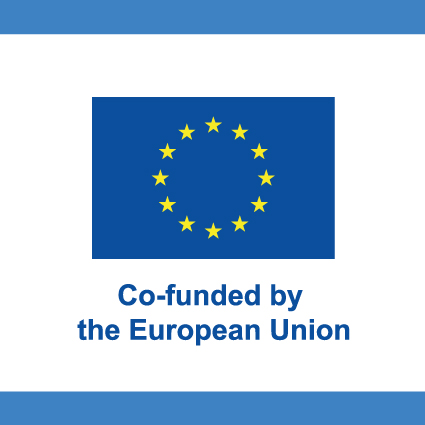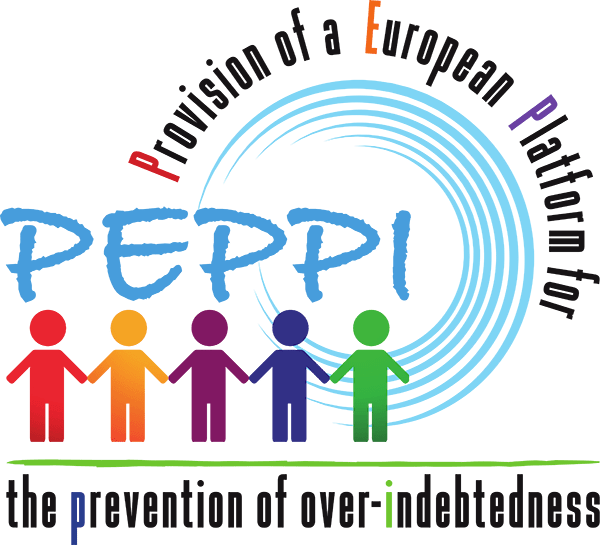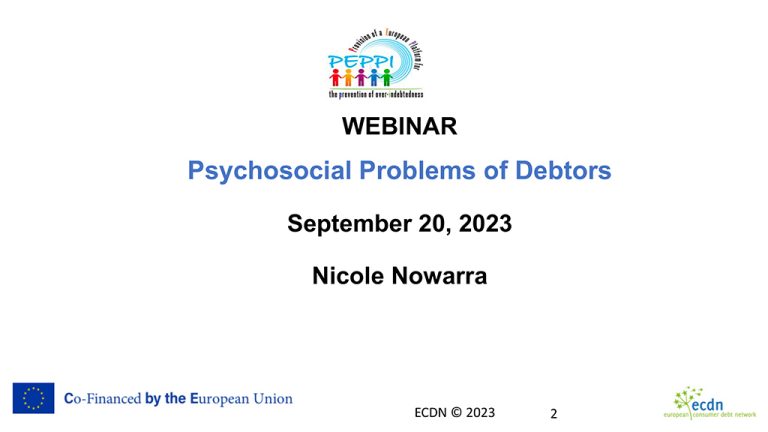Webinar, September 20, 2023
Psychosocial Problems of Debtors
Invited national experts from Ireland, Sweden and Germany speak about the psychosocial problems of debtors.

Fredrik Tjulander -The Swedish Experience
Download presentation:
https://usercontent.one/wp/ecdn.eu/wp-content/uploads/2023/09/PEPPI-Webinar-Series-F-Tjulander-Psychosocial-problems-of-debtors-20-September-2023.pdf?media=1673368772

By loading the video, you agree to YouTube's privacy policy.
Learn more
Watch on YouTube:
https://www.youtube.com/watch?v=k3JFFUygO7Q
Nicole Nowarra – The German Experience
Download presentation:
https://usercontent.one/wp/ecdn.eu/wp-content/uploads/2023/09/PEPPI-Webinar-Series-Nicole-Nowarra-Psychosocial-problems-of-debtors-20-September-2023.pdf?media=1673368772

By loading the video, you agree to YouTube's privacy policy.
Learn more
Watch on YouTube:
https://www.youtube.com/watch?v=qUa7nhi-lQI
Stuart Stamp – The Irish Experience
Download presentation:
https://usercontent.one/wp/ecdn.eu/wp-content/uploads/2023/09/PEPPI-Webinar-Series-Stuart-Stamp-Psychosocial-problems-of-debtors-20-September-2023.pdf?media=1673368772

By loading the video, you agree to YouTube's privacy policy.
Learn more
Watch on YouTube:
https://www.youtube.com/watch?v=b5rQryMg020
Psychological aspects of debts
- perception of money and wealth,
- asymmetric perception of economic profit and economic loss,
- perception of the potential for status change,
- basic about mental disorder and mental disabilities, treatment recommendation, clarification about possibilities for specialized help in your country,
- compulsive shopping as a nonsubstance addiction,
- gambling addiction,
- mechanism of stress and his consequences,
- Psychological effects of permanent pressure of creditor and/or collections agency to debtor (when start stalking),
- Berne’s transactional analysis.


- Awareness of the problem related to debt (level of understanding of size of the problem and being ready to face the problem and solve it),
- analysis of potential root-causes of client’s behavior leading to the current situation,
- analysis of client motivation,
- Identifying the need for psychological support and/or crisis intervention.
This might include key aspects of psychological help.

Co-Funded by the European Union. Views and opinions expressed are however those of the author(s) only and do not necessarily reflect those of the European Union or EISMEA. Neither the European Union nor the granting authority can be held responsible for them.



